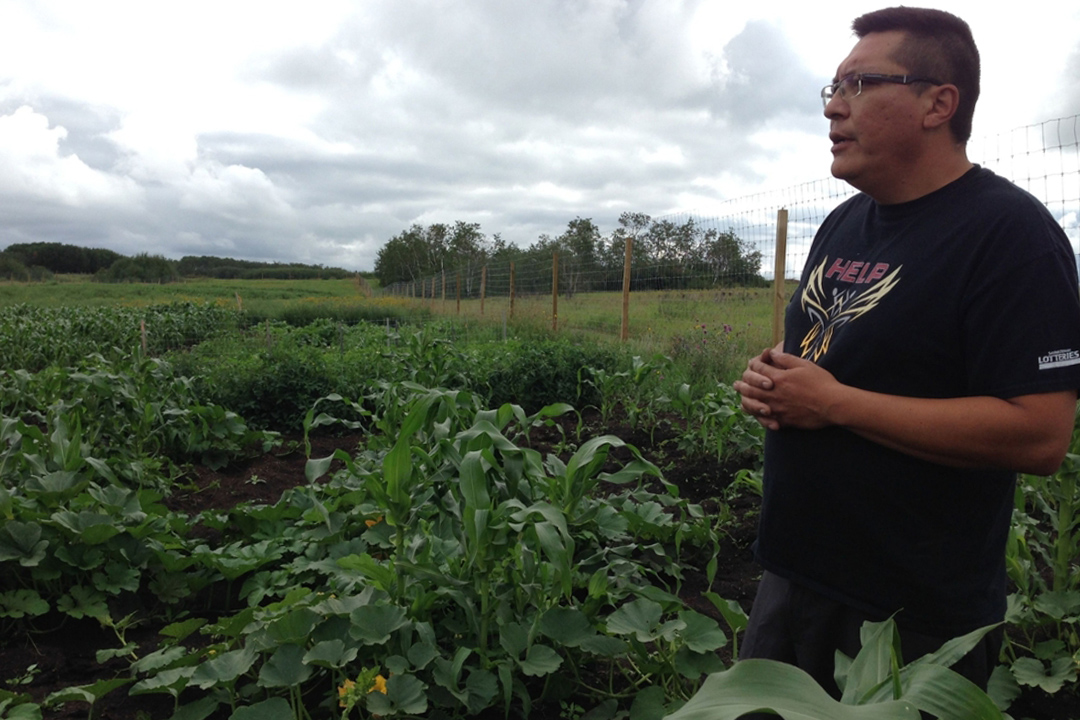
Forging new paths
Alfred Gamble remembers students from the University of Saskatchewan coming to Beardy’s and Okemasis First Nation decades ago to perform research. But Gamble says he never saw what became of their work.
By HenryTye GlazebrookToday, he is working alongside the U of S and its School of Environment and Sustainability (SENS) to ensure that future partnerships benefit his community as well.
“They were gone forever. We never saw the data. It may have been given to somebody, but it was never really shared with us. That was a concerning factor for our whole community, especially with our Elders,” Gamble said, adding that he is enthusiastic about his recent involvement.
“The whole idea now is to change that mentality, to have the university and SENS here so constantly, so ingrained within our community that it becomes natural and it becomes expected.”
Gamble is an Indigenous mentor with SENS from Beardy’s and Okemasis First Nation. The position is part of an overall collaboration between the school and the community, and sees him acting as a liaison between the two as well as a bridge to help coordinate the sharing of each group’s knowledge with the other.
So far, he has been wholly impressed with the extent to which the relationship has flourished.
“It goes right to the top, to the executive director, and sharing that knowledge—filtering it down through the entire department. I’m being constantly being introduced to new faculty in other programs and initiatives, and of course to the students themselves. There’s so many students in various topics and it actually seems that every one of them is relevant to our organization in one way or another.”
The connection with SENS has spurred a number of research projects at Beardy’s and Okemasis that Gamble is proud of, including a source water protection plan, has proven to be of great interest to the community at large.
“Because of the source water protection plan, we did a community development survey and it turns out that there were about 50 action items. Within the top ten—probably within the top five—was source water. It was one of the most important issues.”
What Gamble is most happy with, however, is how the sharing of collected data is leading to real change for the people in his community.
“Just about all the research that we’ve done is an accomplishment, but what I think is even more of an accomplishment is that we don’t let these documents sit on a shelf and gather dust. We’re actually incorporating a lot of these documents in our everyday operations, and they’re influencing our judgement calls,” he said, citing how the water protection study has led to plans to eliminate a nearby lagoon this fall in order to prevent waste spillover into critical water sources.
“They’ve become almost guiding principles for us, and that has never been the case in the past.”
Recently, a commemorative event at Beardy’s and Okemasis granted Gamble the opportunity to see how the relationship between the First Nation, SENS and the U of S as a whole has helped to change lives for the better.
“We did our treaty day celebrations here, and we introduced a whole bunch of students and faculty from the university. I had them come on stage in front of the whole community and I introduced them,” he said.
“We got a big, warm applause. They were happy. It reassured us that what we’re doing here is something that I think the community recognizes as important as well.”
The relationship between SENS and his First Nation is one that Gamble is proud to say has been cemented through a band council resolution filed in Ottawa, and one that he is excited to see continue into the future.
“We’re still in our infancy stage, I believe. I plan on working with SENS forever,” he said.
“This relationship with SENS is so powerful. It filters right down to the most minute organism in the landscape and right up to the highest courts in Canada. We’re right in-between. This is how powerful this knowledge sharing is.”
HenryTye Glazebrook is a communications coordinator with the School of Environment and Sustainability.

